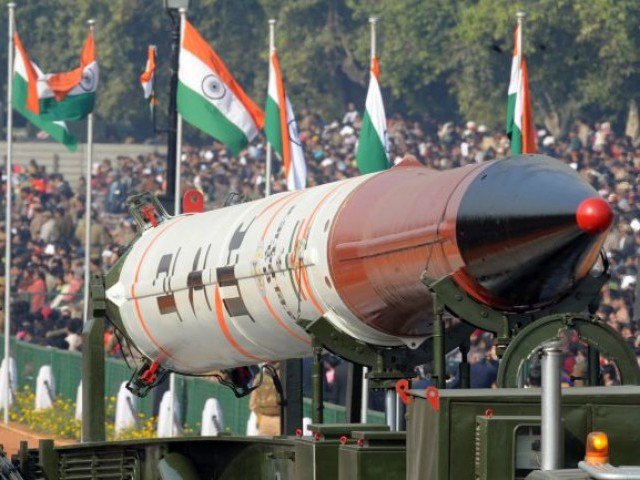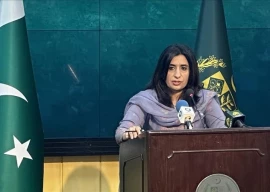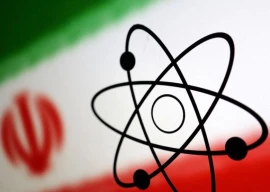
Adviser to the National Command Authority (NCA), Lt Gen (retd) Khalid Ahmed Kidwai, has warned that threats to the region’s strategic stability have grown because of Hindu fundamentalists’ control of Indian nuclear arsenal.
He was speaking at the 8th Centre for International Strategic Studies (CISS) and The International Institute for Strategic Studies (IISS) workshop on ‘Strategic Stability in South Asia’ on Monday.
“The custodial control of India’s large triad of the nuclear arsenal have now fallen firmly in the hands of an extremist fundamentalist leadership,” he said, adding that the “toxic mix of poisonous ideology and custody of nuclear weapons” was a new phenomenon that was posing a serious threat to strategic stability in South Asia.
Indian National Command Authority is responsible for command, control and operational decisions pertaining to the country’s nuclear arsenal. Its political council is currently led by Prime Minister Narendra Modi, while the executive council is headed by National Security Adviser Ajit Doval. Moreover, few ministers having RSS background are also members of NCA – these include Home Minister Amit Shah and Defence Minister Rajnath Singh.
Also read: Strategic ambiguities in India’s nuclear doctrinal posturing
PM Modi, it may be recalled, has maintained an aggressive nuclear stance. In his public rallies he talked about usability of nukes. Under Modi’s watch, his ministers and retired senior officials have signalled changes in the nuclear doctrine, which they later denied. His ministers have also made provocative and irresponsible statements on various occasions.
General Kidwai warned that the threat posed by extremists’ control of Indian nuclear weapons had “assumed a real life character and momentum of its own”. The situation, he noted affects not only the region, but also beyond.
He said the February 2019 air strike in Balakot and the March 2022 missile incidents were examples of extremists committing aggression against the nuclear-armed neighbour, while being oblivious of the consequences.
Rejecting Indian assertion that the BrahMos Missile that crashed in Pakistan on March 9 had been accidentally fired, General Kidwai, who has overseen several tests, said it was not an accident as the launch could not have taken place without political clearance at the highest level and detailed operational and technical planning spanning over weeks.
Pakistan on both occasions displayed restraint and maturity in diffusing the tensions, thereby preventing South Asia from spiralling into potential catastrophes, he maintained.
Referring to the so-called AUKUS submarine deal under which US and UK would proliferate nuclear technology to Australia to build nuclear attack submarines, he warned against making a similar arrangement with India.
Also read: India admits to ‘accidentally’ firing missile into Pakistan
“I have no hesitation in stating that minimum Pakistani counter measures would be put in place if a reckless imbalance is induced in South Asia, it is not a warning, it's a contingency foreseen,” General Kidwai said while recalling that exceptionalism had been repeatedly employed in South Asia in the past in disregard of Pakistani concerns.
History, he asserted, also tells that Pakistan did not let the international exceptionalism stand in its way to address the imbalances created in the past.
Other experts, who spoke at the workshop, discussed the political and technological drivers of strategic stability in the context of South Asia.
They also deliberated upon the impact of Indian and Pakistani strategic cultures, Hindu Rashtra, big-power competition, emerging technologies, trends in export control arrangements, and the military developments under the growing framework of the Quad Axis.

1730884134-0/BeFunky-collage-(26)1730884134-0-165x106.webp)

1730981853-0/BeFunky-collage-(30)1730981853-0-165x106.webp)



1730379446-0/WhatsApp-Image-2024-10-31-at-17-56-13-(1)1730379446-0-270x192.webp)
1730985983-0/Express-Tribune-Web-(28)1730985983-0-270x192.webp)
1730797335-0/Untitled-design-(81)1730797335-0-270x192.webp)










COMMENTS (16)
Comments are moderated and generally will be posted if they are on-topic and not abusive.
For more information, please see our Comments FAQ